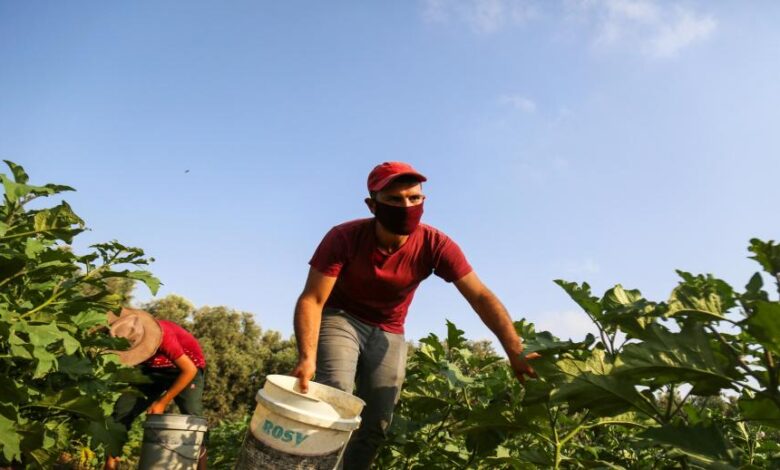
Wael Ayesh, a taxi driver, works 11 to 14 hours a day, to provide for the needs of his family of three, and to secure the house rent at the end of the month.
However, since the start of the Israeli aggression on Gaza on the ninth of May, he did not take his vehicle out onto the roads for fear that the security situation would slip into a major escalation.
He says, “This aggression is not the first to affect our daily lives. It was preceded by many Israeli wars that are repeated every year or two, with which our lives become extremely difficult.”
This is not the only thing that makes it difficult for Wael, as he lives close to the area of the security fence separating the northern Gaza Strip, which compels him to send his wife and son to her family’s house.
On normal days, Wael (33 years old) arrives on public lines day and night to pick up passengers and collect 50 shekels or less, which helps him meet the needs of his family, and saves a small part of it to be able to pay the rent of the house in which he lives.
Wael is considered a model for dozens of daily workers who support their families according to the wages they receive or the services they provide to citizens, such as taxi drivers, carts selling cold and hot drinks, farmers, bakery and industrial workshop workers, and other groups.
He added, “Our lives as daily workers are difficult and increased due to the Israeli aggression. One of us is not able to go out to work, either for fear of himself and his children, or because the general situation does not allow. The roads seem empty of citizens as a result of the closure of public and private institutions for fear of the deteriorating security situation.”
He goes on to say that he and his family are trying to spend the days of aggression with the savings they have available, “and this means that I will have to borrow this month in order to pay the house rent.”
The difficulty of living conditions and access to work is reflected by the farmer, Khaled Qudeih, from the city of Khan Yunis, whose work is concentrated in the border areas. The land he works on is only 150 meters away from the separating security fence, as the situation becomes frightening for him.
He says: “Sometimes, as a daily worker, I have to sacrifice my soul in light of any escalation or aggression in order to provide for my young children, and to provide treatment for my sick parents.”
Qudeih (37 years old) supports eight people, and he usually works on the land from five o’clock in the morning until twelve o’clock in the afternoon, and returns again in the evening hours so that he can provide for his children and not accumulate debts on his shoulders, but he avoids access to the land during the escalation .
He points out that the daily income ranges between 15 and 25 shekels, and he charges 5 shekels per hour.
Qudeih remains silent, then continues his speech: “This is our life in the quiet days when we are able to work and reach the land, so it should not be in the shadow of aggression from which we cannot leave the house, and therefore not a single shekel enters our pockets since the beginning of the Israeli escalation.”
Symbiosis and Togetherness
As a result of these conditions, activists launched the “With Our Family” campaign, which aims to help day laborers who cannot go out to support and meet the needs of their families due to the ongoing Israeli aggression on Gaza.
Zaki Madoukh, one of the initiating team, says that the campaign comes to achieve a form of solidarity, social solidarity, cooperation and standing by the people in light of the continuous aggression against them, and to strengthen their steadfastness.
He indicated that the campaign is being implemented in the Gaza Strip, and the team has so far been able to distribute more than 1,000 food parcels to daily workers and needy families.
He added, “The campaign comes in the context of their charitable coordination initiative, and to save this group from the difficult conditions they are going through due to the aggression that causes them to stop in all aspects of life, especially since the majority of families in the Strip live by the daily work system.”
According to a fact sheet published by Al-Mezan Center for Human Rights, in September 2020, the number of day laborers in the Gaza Strip is estimated at 18,000, and they work at an average wage of 49 shekels per day.





